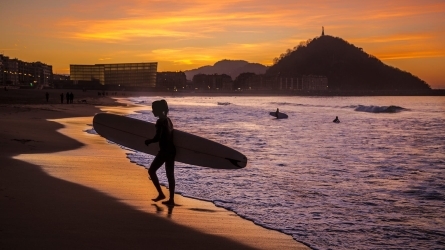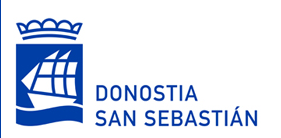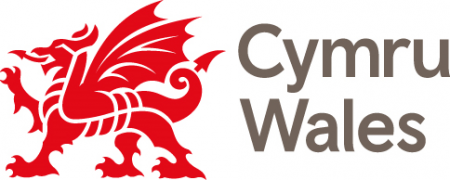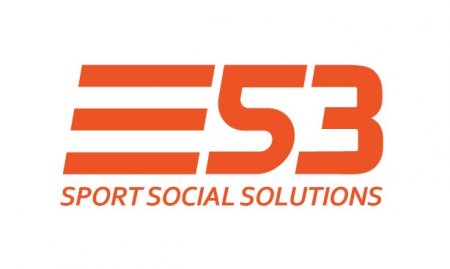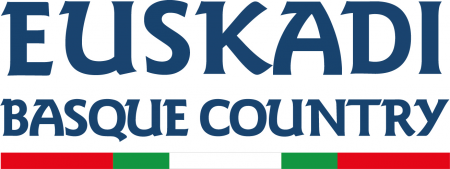Challenges and opportunities of sports diplomacy in the 21st century
A global view from the Basque Country
Description
Course in English, Basque and Spanish. A translation service will be available to follow the course in any of the languages..
During the year 2023, the Basque Country, and Donostia in particular, will host a diversity of cultural and sporting events that justify deeper exploration into sports diplomacy, a field with an enormous growth capacity and rapidly evolving interest from the international community. The hosting of the first stages of the Tour de France, the consolidation of the Donostia Cup or the festival atmosphere around hosting French rugby’s semifinal of the Top 14 competition are some of the milestones that will place Euskadi on the world map. But beyond these events, Euskadi represents by itself a reality within the diplomacy of sport. A reality that has not yet been properly analyzed and offers a goldmine of untapped potential for Basque global engagement and intercultural relations.
For some time now, the Basque Country has been practising forms of sports diplomacy (sometimes informally or indirectly, without explicitly using this term). This is certainly not in vain, as sports diplomacy is one of the most powerful tools available to substate nations, stateless nations or similar that aspire to gain relevance and international positioning and influence. However, there is little awareness in this regard. Therefore, this proposal is an opportunity to bring together two realities that are sometimes ignored. That is, the academic world concerned about the subject and those who, in practice, exercise sports diplomacy without being fully aware of it.
On the other hand, we live in turbulent times. Instabilty and uncertainty are the main characteristic of the modern era, in which a new raft of disruptive actors are emerging in response to a chaotic geopolitical landscape and fast paced digital world, bringing added complexity to historical challenges. In this context, sport is arguably needed more than ever to sublimate conflict, overcome estrangement, and bring peoples and cultures together for positive reasons. It is therefore relevant to open the debate to the general public and delve deeper into a field that is acquiring a growing prominence in the universe of international relations.
Course structure
The route proposed for the course is as follows: Firstly, and during the first sessions, a theoretical approach will be made on the concepts of sport diplomacy. We understand that there is still a pedagogical work to be done to approach and link society in general, but also to the various institutions, agents and individuals who work in this field on a daily basis, often unconsciously and unconnectedly. It is therefore necessary to explain its foundations, its history, the different sensitivities and approaches that coexist in it.
Secondly, it is proposed to include analysis on topics that are increasingly interacting with sports diplomacy and feature strongly in today’s social and civil discourse. This includes (but is not limited to) values based or social inclusion themes such as the role of women and girls in the world of sport and leadership; the social elements of integration and cohesion that have made reconciliation processes possible in South Africa, Ireland or Colombia; the ethical, business and economic factors behind the delivery of sporting initiatives; the national, regional and cultural identity variables at play in the international sportscape; etc.
Thirdly, the congress will showcase successful and consolidated models of sports diplomacy policies. The work carried out by the Secretary of State of the United States Government will be one of the cases to be analyzed. In addition to this specific case, models of unquestionable success will be presented. Taking into consideration the typology of the Basque case, the congress will provide an opportunity to learn about approaches which, due to their territorial dimension, identity, cultural, political or administrative characteristics, have been the subject of a number of different projects.
Scotland, Wales, Macedonia or New Zealand will be analyzed. The unique politics followed by football teams in the Basque Country or the fervor of cycling (close to a national religion), that exists here are other elements that will be addressed at the congress.
The congress will also make it possible to overcome certain dominant visions in sport. The diplomacy of basketball, rugby or surfing are some of the exponents of views that transcend the predominance of football, to cite the classic paradigm. That is why phenomena such as mountaineering (along with other sports closely related to nature) will be the subject of analysis at the congress. In mountaineering, for example, apart from its sporting aspect, there are elements of socialization, identity and connection to the landscape that require an analysis that has not been addressed so far.
Finally, the congress will include a reality that is not exclusive to the Basque Country. Autochthonous sports are a very relevant reality. However, sometimes they have not been given enough attention. In this respect, the sport of jai-alai has probably been one of the main branding tools or characteristics that Euskadi has historically exported. However, it has not been until its disappearance in the United States that we have realized its value as a brand and as an element that allowed Euskadi to position itself internationally. The recreational-sporting and community building aspects of estropadak (Basque rowing regattas) and rural sports (Herri kirolak) are another element that should be analyzed. Likewise, the congress will analyze many other aspects that will be incorporated as the program is configured.
As a key principle of this proposal, a commitment will be made to ensure a global view that overcomes the Eurocentric and western vision that very often overshadow these types of initiatives. Africa, Asia, Oceania and Latin America will all be afforded a platform and actively conisdered during the congress.
Objectives
Main objective of the course
To further socialize the field of sports diplomacy, which is increasingly been asked to play an important role in response to contemporary geopolitical challenges and as a portal to enable positive intercultural relations,
Specific objectives
- What is sport diplomacy? To provide a general approach to the concept.
- Definition of the concept of sport diplomacy. To analyze the role of sport diplomacy in public diplomacy.
- To expose referential models. The paradigmatic case of the United States.
- To show and analyze models comparable to the Basque model. The case of New Zealand, North Macedonia, Friesland (Netherlands), Ireland, Wales, Quebec and/or Catalonia.
- To highlight the work that cities can carry out through 'city diplomacy' in the field of sport diplomacy.
- To show the social contributions of sport diplomacy.
- To approach the business dimension of the concept.
- To show the identity and value dimensions underlying the concept of sport diplomacy.
- To showcase the value of sport as an instrument of country branding.
Activity directed to
- All public
- University student
- Students not from university
- Teachers
- Professionals
Organised by
Program
28-06-2023
Registration
Institutional Opening session. Speaking order:
- Imanol Galdos Irazabal | Donostia Kultura
- Eneko Goia Laso | Donostia/ San Sebastian - Mayor
- Marian Elorza Zubiria | Basque Government - General Secretariat of External Action
- Bingen Zupiria Gorostidi | Basque Government - Culture and Linguistic Policy
- Markel Olano Arrese | Gipuzkoa Provincial Council
“ 1. 1 Session: Fundamentals of Sport Diplomacy“
Speaker: Stuart Murray
- Stuart Murray | University, Australia - Sports Diplomacy Alliance & Bond
Sport Diplomacy as an instrument of public diplomacy
- Carmen Pérez González | Universidad Carlos III - Vice Dean for Academic Exchanges and International Relations; First Vice Dean (Participation by zoom)
“1.2 Session: A comparative look at models“
a) United States
- Ashleigh Huffman | Department of Sports Diplomacy of the United States Government - General director
b) North Macedonia
- Silvija Mitevska | North Macedonia NOC & Founder and Director at Sport Social Solutions - Founder and Managing Director at Sport Social Solutions
c) EU Sports Diplomacy
- Richard Parrish | Edge Hill University - Professor
Break
“1.3 Session: Major sporting events: World Cup, Olympics, Tour de France. Diverse viewpoints“
- Jonathan Grix | Manchester Metropolitan University. - Professor
- Ekain Rojo Labaien | University of the Basque Country UPV/EHU - Professor
“ 1.1 Session: Round table: The role of sub-state entities (regions, cities...) and other non state actors in sport diplomacy“
- Carlos Pulleiro Méndez | Basque Country
- Xavier Ginesta Portet | Vic-Central University of Catalonia - Professor
- Ainhoa Churruca Airbe | Zegama Aitzgorri - Directora
- Iñigo Olaizola | Donosti Cup
“1.2 Sessión: A look at the Basque reality: the construction of an identity. A look at the Basque reality; the practice of mountaineering; estropadak; autochthonous sports. Jai Alai. Basque pelota. Cycling. Other models: Scotland.“
- Marian Vaczi | University of Reno - Professor (Participation by zoom)
- Olatz González Abrisketa | UPV/EHU
- Imanol Muñoz | Marketing Director
- Enrique Cifuentes | Behobia San Sebastián - Director
29-06-2023
“Women's voices: the role of women as the key to a renewed perspective on sport“
Sports diplomacy and inclusion
- Claire Jenkin | University of Hertfordshire - Senior Lecturer in Sports Development,
Sport, Human Rights and Safeguarding: Interactions and Gaps
- Dikaia Chatziefstathiou | Canterbury Christ Church University - Reader in Olympic Studies & the Social Analysis of Sport and Director of Research Environment in the School of Psychology and Life Sciences
“The economic-social dimension of sport“
Diplomacy in sport’s geopolitical economy
- Simon Chadwick | SKEMA Business School, Paris - Professor (Participation by zoom)
Break
“1.3 Sessión: Other sports. Beyond the prevalence of soccer“
- Lindsay Sarah Krasnoff | Director, FranceAndUS (Director); Adjunct Faculty, New York University Tisch Institute for Global Sport - Director
- Yoav Dubinsky | University of Oregon - Instructor of Sports Business. Cycling diplomacy.
- Neftalie Williams | USC - Skateboarding diplomacy
- Carole Gomez | University of Lausanne (ISSUL) - Graduate assistant, Institute of Sports Sciences (Participation by zoom)
“1. Part one Sport diplomacy and its role in international relations. The emerging scenario of the 21st century“
- Simon Rofe | University of Leeds - Associate Professor
“Part two-Session on the merging of sport diplomacy and broader cultural relations and cultural diplomacy (arts, music, photography, history, landcapes, heritage etc). The case of Welsh“
1. General Presentation
- Gavin Price | SDA and Bond University - Director - UK / Europe (Participation by zoom)
- David Warren | Welsh Government - Head of International Relations
Creative Arts. Cultural activities and sports diplomacy
- Eluned Haf | Arts Council of Wales - Head of Wales Arts international
Professor of Public Policy and the Governance of Wales at Cardiff University's Wales Governance Centre
- Laura McAllister | Cardiff University's Wales Governance Centre - Professor of Public Policy and the Governance of Wales at
“Diolch-Eskerrik Asko from Team Wales David Warren and/or TBC, Welsh Government “
- David Warren | Welsh Government - Head of International Relations
“ Commentary and live music set from Ani Glas “
- Ani Glas | Singer
Fireside chat and audience questions: Ani Glas with Professor Laura McAllister
DJ music (Ani Glas) and drinks to continue for those who wish to stay on for longer in the evening
Directors
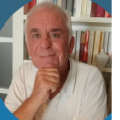
Imanol Galdos Irazabal
Donostia Kultura
More than 30 years experience in public administration, in several responsabilities. Long career in Education, Academia, Media, Culture and Politics. Currently, Assistant Manager of Donostia Kultura, the Culture Department of the City of San Sebastian, in charge of the International Affairs. Researcher, lecturer, international speaker and writer on issues related to public diplomacy,cultural diplomacy, city diplomacy,basque diaspora, local governance, culture policy, foreign policy, international relations, public communication, minority languages and cultures. Former Assistant Professor at the University of Reno (Nevada, United States). Researcher and visitor at Boise State University (Idaho, United States). Coordinator of Other Words/Beste Hitzak, a programme co-funded by Creative Europe (2015-2018). He has a diverse and broad academic background in Law, Linguistics, Translation and Interpretation, International Relations and Public Administration.

Gavin Price
Assistant Director
Gavin Price’s career spans 15+ years of experience in international trade, intercultural relations and leadership across the Australian, UK and international public sectors. He is a PhD candidate at Bond University (Australia), an expert on sports diplomacy in small nations and football diplomacy, an Honorary Member of the Centre for Sports Law, Policy and Diplomacy at the University of Rijeka (Croatia) and co-author of the British Council’s research report: Towards a Welsh sports diplomacy strategy. Mr Price pioneered the innovative field of sports paradiplomacy, including successful projects involving government, business, the sportscape and academe in Wales, the Basque Country and with other peak non-state sporting actors. An established writer and speaker, he has delivered publications, podcasts and lectures on topics as wide ranging as Australian and Asian Football Diplomacy, Athlete Activism and sports diplomacy policy and practice in major nations. He is co-director of the 2023 Australia-UK sports diplomacy dialogue series and the world’s first World Congress on sports diplomacy (Donostia-San Sebastián, summer 2023).
Speakers

Simon Chadwick
Professor Simon Chadwick is a researcher, writer, academic, consultant, policy advisor, and speaker with more than twenty-five years experience in the global sport industry. His work focuses on the geopolitical economy of sport. Chadwick is Professor of Sport and Geopolitical Economy at Skema Business School in Paris, where he is also a member of its think tank - Publika - as well as Programme Director of Skema's Global Executive MBA in Sport. Simon previously co-founded and directed Emlyon Business School's Centre for the Eurasian Sport Industry, the University of London's Birkbeck Sports Business Centre, Coventry University's Centre for the International Business of Sport, and Salford University's Centre for Sport Business. In addition, he has worked at several of the world's most prestigious business schools, such as IESE in Spain, Otto Beisheim in Germany, Tsinghua in China, COPPEAD in Brazil, and Waseda in Japan. He has written numerous articles, books, and research reports for the likes of Forbes, Sloan Management Review, the Wall Street Journal, The Economist, Forbes, Thunderbird International Business Review, Mastercard, Newsweek, Reuters, Time, Routledge, and Financial Times Prentice Hall.

Dikaia Chatziefstathiou
Reader in Olympic Studies & the Social Analysis of Sport and Director of Research Environment in the School of Psychology and Life Sciences in Canterbury Christ Church University, UK. She is the author of the book Discourses of Olympism: From the Sorbonne 1894 to London 2012 published by Palgrave (2012; co-authored with Professor Ian Henry) and the Editor-in-Chief of the Routledge Handbook of the Olympic and Paralympic Games (2020). She has edited several books in relation to Olympic Studies, e.g., on Olympism, Olympic values and Olympic Education. She has also written the storytelling book Imagine my Stories for Peace containing five stories for inspiring young people to embody the Olympic values in their lives (2016; published by the International Olympic Truce Centre). In her more recent work, she is unpacking some of the diverse issues of abuse in sport. She is the Head of the Sport, Human Rights and Safeguarding Research Group that is committed to conducting high quality, values-led research to improve health, wellbeing, and welfare for those working and participating in sport. She is the winner of the inaugural Coubertin Prize 2008 awarded by the International Olympic Committee (IOC) and the International Pierre de Coubertin

Ainhoa Churruca Airbe
I am Ainhoa Churruca Airbe, a 43-year-old Zegamarra who is born, raised and lives there. Industrial delineator by study and profession. Siemens Gamesa, who has been working at the Asteasu company for 21 years. For eight years now, Zegama Aizkorri, director of the mountain race, volunteered. My village and surrounding mountain lover.
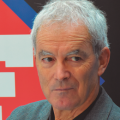
Enrique Cifuentes
Donostiarra desde los cuatro años. Licenciado en Derecho por la Universidad del País Vasco, ejerció como abogado durante toda su vida profesional. Actualmente jubilado. Deportista y practicante sobre todo del montañismo en Pirineos, Alpes, Andes e Himalaya. Presidente del Club Deportivo Fortuna desde 1981 y desde ese año máximo responsable de la carrera popular Behobia-San Sebastián, la más importante del calendario vasco de pruebas deportivas, con 30.000 participantes. Muy implicado en ella y por cuya recuperación histórica apostó también como directivo del club en el año 1979. Impulsor decidido del carácter abierto y popular y de la participación femenina en la prueba.
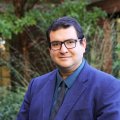
Yoav Dubinsky
Dr. Yoav Dubinsky joined the Lundquist College of Business at the University of Oregon in 2018 after completing his PhD at the University of Tennessee, Knoxville. Born and raised in Tel-Aviv, Israel, Dubinsky is a sports researcher and a former sports journalist with almost two decades of experience covering and researching local, national, and international sports. His interdisciplinary scholarship focuses on sports, nation branding, public diplomacy, and country image and especially how countries, cities, and communities try to improve their images and reputations through sports. As a journalist, he has covered hundreds of sports events around the world. Focusing on the Olympic Movement, Dubinsky has covered or researched the Olympic Games from Beijing, London, Rio de Janeiro, and Tokyo. He has been involved with the International Olympic Academy as a lecturer, a coordinator, and a student, using sports as a tool for inclusion in diverse international environments. Part of Dubinsky’s research line focuses on Israel’s use for nation branding and public diplomacy, including through cycling and the Tour de France.

Xavier Ginesta Portet
Xavier Ginesta Portet is an Associate Professor at the Faculty of Business and Communciation at the University of Vic-Central Univerisity of Catalonia. He is a member of TRACTE Research Group and the author of several researches in sport place branding and sport diplomacy. He has worked as a sports writer for several media outlets. He has worked as a sports writer for several media outlets. He is the author of La disneyització del futbol (2021) and Las multinacionales del entretenimiento. Fútbol, diplomacia, identidad y tecnología (2022).

Ani Glas
Ani Saunders is an artist and an electronic pop musician and producer from Cardiff who performs under the name Ani Glass. Ani was raised in both Cornish and Welsh and is a member of Gorsedh Kernow which celebrates the cultural and linguistic heritage of Cornwall. She recently completed a doctorate at Cardiff University that explored the dynamics of agency in old industrial towns in Wales. It focussed on two case studies in Wrexham and Llanelli - the former which considered the power and influence of culture (be it art, music, football or any other form of expression) in driving change, and the latter that looked at the growing influence of health and well-being in driving change. She is looking to continue this journey by working with individuals and organisations that are seeking to empower communities to build their own agency and drive their own visions for change, specifically in the context of arts and football.
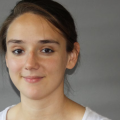
Carole Gomez
Está escribiendo su tesis sobre cómo abordan las federaciones deportivas internacionales la violencia de género dentro de su deporte. También es investigadora asociada en el IRIS, especializada en la geopolítica del deporte, y su trabajo de investigación, principalmente para instituciones francesas y extranjeras, se centra en la diplomacia deportiva, las cuestiones de integridad y la reforma de la gobernanza deportiva.
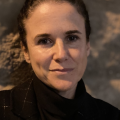
Olatz González Abrisketa
I am a professor at the University of the Basque Country (UPV/EHU) and president of the Basque Association of Anthropology, Ankulegi. My main research topics have been sport, sexual solidarities and animal worlds. Regarding the first of them, I am the author of Raquetistas. Gloria, represión y olvido de las pelotaris profesionales (San Soleil, 2022), and Pelota Vasca: un ritual, una estética (Muelle de Uribitarte, 2005), published in English in 2012 as Basque Pelota: a ritual, an aesthetic (CSB, UNR). I have also directed, together with the Danish filmmaker Jørgen Leth, Pelota II (2015) and I have made the scientific direction of the exhibition Jokoak. Matter and challenge, held at the Museum of San Telmo in 2016.

Jonathan Grix
Jonathan Grix is a full Professor of Sports Politics and Policy in the Business and Law Faculty at Manchester Metropolitan University and leads the Faculty’s Sport Policy Unit. He is a global academic leader in the politics of sport and has published over 70 peer-reviewed articles, 30 book chapters and 15 books. His areas of expertise are the politics of sport, government involvement in sport and sports mega-events and soft power. Jonathan’s most recent book is Entering the Global Arena: Emerging States, Soft Power Strategies and Sports Mega-Events (2019) and he is currently working on the role of Germany in the politicization of modern sport. Jonathan is the Editor-in-Chief of the International Journal of Sport Policy and Politics.

Eluned Haf
Eluned Hâf is Head of Wales Arts International, the international agency of the Arts Council of Wales and works closely with Welsh Government to deliver cultural programmes for Team Cymru initiatives, such as the recent international cultural programme for the FIFA World Cup. A mother-tongue Welsh speaker, Eluned studied languages and journalism and worked for BBC Cymru Wales and Reuters TV before becoming press officer for the Greens/EFA Group in the European Parliament. She was the founder of una creative European communications agency taking up her current role. She lead the successful bid to host the World Music Expo WOMEX in Cardiff in 2013. A career high was in 2015 when language and culture was adopted as one of the seven goals in the pioneering Wellbeing of Future Generations Act, Wales’ contribution towards the UN Global Goals. Eluned loves to sing and play football with her three boys. At the age of 14, she was the first girl to attend the Bobby Charlton Soccer School, an experience that helped to shape her determination to fight for equalities for all in sports.
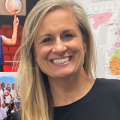
Ashleigh Huffman
Dr. Ashleigh Huffman is the Chief of Sports Diplomacy at the U.S. Department of State based in Washington, DC. Ashleigh works with governments, sports leagues, organizing committees, nonprofits, educational institutions, and businesses to tackle global issues and advance foreign policy priorities such as gender equity, diversity and inclusion, disability rights, climate change, mental health, and racial justice. She serves as a leading advisor on international sport policy and oversees international exchange opportunities, including world championships, the Olympics and Paralympics, and the World Cup. Before joining the State Department, Ashleigh was a professor at the University of Tennessee and co-founder of the Center for Sport, Peace, and Society. In that role, Ashleigh worked closely with the State Department and espnW to launch the Global Sports Mentoring Program, which was awarded in 2018 with the ESPN Stuart Scott Humanitarian Award and the Peace and Sport "Diplomatic Action of the Year” Award. Ashleigh has worked with professional, university, and amateur athletes and coaches from more than eighty countries, including the United States, on leadership development, cultural understanding, and social change. She frequently l

Claire Jenkin
Dr Claire Jenkin is a Senior Lecturer in Sports Development at the University of Hertfordshire in the UK. She has been in the sports development industry for over 15 years working across the UK, Australia and Zambia, ranging from working in local communities, to informing national and international policy and practice through academic research and teaching, for example, being an expert witness for the UK Government’s 2020 inquiry into ‘Sport in our Communities’. Her main research areas are sport for development, sports diplomacy and community sport participation for under-served communities. Claire is also the Co-Chair of the UK Sport Development Network and is passionate about knowledge exchange.
Dr. Lindsay Sarah Krasnoff is a historian, writer, speaker, and consultant working at the intersection of global sport, communication, and diplomacy. Director of #FranceAndUS, she is the author of Basketball Empire: France and the Making of a Global NBA and WNBA (2023), The Making of Les Bleus: Sport in France (2013) and Views From the Embassy (2014), and has written about global sports for The Athletic, CNN International, VICE Sports, ESPN, The Washington Post, The New Yorker, and others. Krasnoff is an Adjunct Lecturer with the Robert Preston Tisch Institute for Global Sport, New York University, where she teaches classes on sports diplomacy. As a Research Associate with the Centre for International Studies and Diplomacy, SOAS University of London, she co-directed the “Basketball Diplomacy in Africa” project pegged to the NBA’s Basketball Africa League. A veteran of the U.S. Department of State’ Office of the Historian, Krasnoff has taught at SOAS University of London, the Foreign Service Institute, The George Washington University, Queens College, Baruch College, and Riverdale Country School. In addition to serving as a SIGA Women Global Mentorship Programme mentor, Krasnoff is an advisory board member for the History Communi

Laura McAllister
Professor of Public Policy and the Governance of Wales at Cardiff University's Wales Governance Centre. Expert on devolution, Welsh politics and elections, public policy and leadership, gender and political representation and sports governance. • Former Wales international player and captain with 24 caps. • Former Chair of Sport Wales and board member of UK Sport. • Current Director of Football Association of Wales Trust. • Deputy Chair of UEFA Women’s Football Committee and member of UEFA women’s strategy working group. Contested election for place on FIFA Council in April 2021. • Chair of the Welsh Sports Hall of Fame. • Co-chair of Independent Commission on Constitutional Future of Wales (with Dr. Rowan Williams), 2021- • Chair of the National Assembly Expert Panel on Electoral Reform, 2017. • Former member of Assembly Remuneration Board, Independent Panel on AMs Pay and Support, the Richard Commission on the Powers and Electoral Arrangements for the National Assembly for Wales. • Western Mail/Wales Online columnist and media commentator on politics, elections, football and sport. • Board trustee of Institute of Welsh Affairs. • Non-executive director of Goodson Thomas Executive Search. • Honorary degrees and fellows

Silvija Mitevska
Silvija Mitevska is the co-founder and president of the non-governmental organization Sport Social Solutions focusing on creating positive change through sport and sustainable development. Silvija was the advisor to the Prime minister of North Macedonia on sports and she has designed and developed numerous national sports policies and programs, particularly in the field of sports diplomacy. She is a certified leader from U.S .State Department Sports Diplomacy Program- Global Sports Mentoring Program and currently she is chairing the Commission on gender equality within the Olympic Committee of North Macedonia as well the Commission on sustainability at International Teqball Federation. Silvija Mitevska was a professional paragliding pilot who has won numerous awards at national and European level. She is also a writer who has published two fiction books.
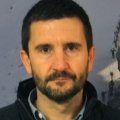
Imanol Muñoz
Imanol was born in San Sebastian in 1971. Native in Basque and Spanish and with English as a language of professional communication. He has a degree in Economics and Business Administration from the University of Deusto, specializing in Marketing and has completed a postgraduate degree in International Trade at the Chamber of Commerce of Gipuzkoa. After 5 years in Strategic Marketing Consulting (Eurogap S.L.), in 1999 he took over the Marketing and Sales Management at LORPEN, driven by his passion for sports and branding, to launch the Etxalar technical socks brand worldwide. In 2015 LORPEN joins TERNUA GROUP, where he joins to take over the Commercial and Marketing Management of the sports brands ASTORE, TERNUA and LORPEN. With the development of the group, his current position is Marketing Director at TERNUA GROUP, with responsibility for the development of the ASTORE, TERNUA, LORPEN, LOREAK MENDIAN and TERNUA WORKWEAR brands

Stuart Murray
Stuart is an Associate Professor in International Relations and Diplomacy (Bond University, Australia), a Global Fellow at the Academy of Sport (The University of Edinburgh), an Honorary Member of the Centre for Sports Law, Policy and Diplomacy at the University of Rijeka (Croatia), and an Adjunct Research Fellow at Griffith University (Australia). A globally respected editor, writer, speaker, and expert on International Relations, Diplomacy and Sports Diplomacy, he has dozens of peer reviewed publications, wrote the book on Sports Diplomacy: Origins, Theory and Practice, and regularly advises governments, international institutions, and non-state actors on a broad range of matters relating to diplomacy, international affairs, and sport. He is also the co-founder of Sports Diplomacy Alliance, a global advisory and accreditation business that specializes in harnessing the power of sport to generate commercial, diplomatic and social impact. Clients include governments, ministries of foreign affairs, international sports regimes and many other players in the global sportscape.
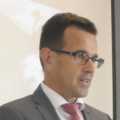
Iñigo Olaizola
Nacido en Donostia, licenciado en geografia e historia. Su trayectoria profesional esta mayormente vinculada al a organizació n de eventos deportivos: es el fundador y director de varios eventos importantes como la Donosti Cup, la carrera de empresas, o la Donosti masters cup. Es también el actual director de la Maratón de Donosti y la Clásica 15k. En el pasado organizó actos como el centenario de la Real Sociedad y los campeonatos de Europa y del Mundo de atletismo de veteranos.
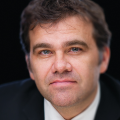
Richard Parrish
Professor Richard Parrish is Professor of Sports Law at Edge Hill University where he is the Director of the Centre for Sports Law Research. Between 2016-19 he was awarded the Jean Monnet Chair of EU Sports Law and Policy by the European Union. Professor Parrish has advised the EU institutions on the development of its EU sports policy, having been a member of the European Commission’s Group of Independent European Sport Experts and a member of the EU Commission’s High-Level Group on Sport Diplomacy. He has authored some of the most influential sports studies commissioned by the EU institutions and he has accepted multiple high-level speaking invitations from public and private bodies from across Europe. He has advised numerous governments and sports bodies on sport related matters.
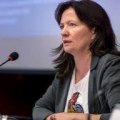
Carmen Pérez González
Carmen Pérez has written extensively in the area of International and EU sports law, anti-doping and the protection of athletes’ fundamental rights. She has over 15 years of experience working with international and multidisciplinary teams. She has been the project leader of Spanish national projects on the role of sport in EU Law and has been a project partner of an Erasmus + funded project focused on football agents (2018-2019). She is now a project partner of two Erasmus+ funded projects focused on EU Sport diplomacy. Between 2005 and 2014 Carmen Pérez served as Member of the Spanish Committee on Sport Discipline (Spanish Sports Council). Since August 2018, she is the President of the Disciplinary Committee of the Royal Spanish Football Association (Real Federación Española de Fúbtol). Between September 2015 and July 2016, she served as Member of the High-Level Group on Sport Diplomacy of the European Commission. She is the Chair Holder of the UNESCO Chair ELIS (Education Linkage through International Sports) in Sport diplomacy and development of a human rights culture through sport established in 2021 at Universidad Carlos III de Madrid

Gavin Price
Assistant Director
Gavin Price’s career spans 15+ years of experience in international trade, intercultural relations and leadership across the Australian, UK and international public sectors. He is a PhD candidate at Bond University (Australia), an expert on sports diplomacy in small nations and football diplomacy, an Honorary Member of the Centre for Sports Law, Policy and Diplomacy at the University of Rijeka (Croatia) and co-author of the British Council’s research report: Towards a Welsh sports diplomacy strategy. Mr Price pioneered the innovative field of sports paradiplomacy, including successful projects involving government, business, the sportscape and academe in Wales, the Basque Country and with other peak non-state sporting actors. An established writer and speaker, he has delivered publications, podcasts and lectures on topics as wide ranging as Australian and Asian Football Diplomacy, Athlete Activism and sports diplomacy policy and practice in major nations. He is co-director of the 2023 Australia-UK sports diplomacy dialogue series and the world’s first World Congress on sports diplomacy (Donostia-San Sebastián, summer 2023).

Carlos Pulleiro Méndez
Carlos Pulleiro Méndez (Bilbao, 1987) obtained in 2016 his PhD in International Studies at the University of the Basque Country. Between 2018 and 2021 he was a research fellow at the School of International Studies of the Sun Yat-sen University (China). In 2019 and 2020 he was a visiting scholar at the Leisure Studies Centre of the University of Deusto. In 2022 he is hired as a lecturer at the Physical Activity and Sport Sciences Degree of the European University of Gasteiz (EUNEIZ). Currently he is an associate researcher at the International College of Football of the Tongji University (China). His main research line is sports diplomacy, publishing several scientific papers and performing peer-review evaluations about sports diplomacy for Routledge and for high quality journals like Communication and Sport, Estudos Internacionais, International Sports Policy and Politics, Soccer & Society or CIDOB d'Afers Internacionals.
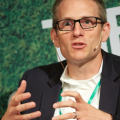
Simon Rofe
Dr J. Simon Rofe is world leading expert in Sports Diplomacy. Simon has an international research profile addressing sports diplomacy, with a particular focus upon the relationship of the sporting ecosystem with diplomatic practice. He has worked with numerous stakeholders from across the sporting and diplomatic realms including, UNESCO & UNICEF, the United Kingdom’s Foreign, Commonwealth and Development Office and Department for Culture, Media and Sport, Foreign Services and government agencies from around the world, anti-doping associations, bidding and organising committees. Simon is Reader and Associate Professor in International Politics at the University of Leeds (2022- ), having been Reader in Diplomatic Studies at SOAS University of London (2011-2022). He developed the first MA module globally to address ‘Sport and Diplomacy: More than a Game’, following a role in the London Organising Committee of the Olympic Games (LOCOG) in 2012. Along with a team of European based colleagues, Simon is working to complete an Erasmus+ project Towards a European Sport Diplomacy strategy. Simon founded the Sport, Diplomacy, and Governance Hub, which provides for multi-directional knowledge exchange, and has established a strong multination

Ekain Rojo Labaien
UPV/EHU
He holds a PhD from the University of the Basque Country UPV/EHU (2013) with a doctorate thesis on sport, mass communication and national identities. He has been a professor at the UPV/EHU since the academic year 2016-2017. He teaches subjects related to the analysis of mass communication and culture. He is a member of the NOR Research Group whose research areas focus on collective identities and media studies. In this line, his specific research areas are linked to the following three lines of action: State and national identities, the media sport event and mass communication. He has completed three long international research stays. In Aix en Provence (France) in 2011 at the Maison Méditerranéene des Sciences de l'Homme; in Liverpool (UK) in 2014 at the Management School of the Liverpool University; and in Baku (Azerbaijan) in 2015-2016 at the Qafqaz University. The latter was framed in an Erasmus Backis post doctoral grant funded by the European Commision. He has published contributions in several international high ranked publications as well as in journals published in Basque. His scientific production have also been presented in many international and national conferences.

Marian Vaczi
Mariann Vaczi is Assistant Professor of Basque Studies and Anthropology at the University of Nevada, Reno. She has worked extensively on the social, cultural and political dimensions of sport in the Basque Country, Catalonia, Transylvania, and Hungary. Her main work is Soccer, Culture and Society in Spain: An Ethnography of Basque Fandom (Routledge 2015), and Sport and Secessionism (co-editor, Routledge 2021).

David Warren
David Warren is the Head of International Relations leading on delivering the Welsh Government’s International Strategy. This includes leading an 18-month focus on sports diplomacy using the opportunities of Wales' participation in sporting competitions to raise our profile and share our values. Prior to that, he has held a number of policy roles including recently as the Head of Circular Economy Policy where he developed the Beyond Recycling strategy. Originally from London, David is a huge football fan and has been in Wales for almost 20 years and is a fluent Welsh speaker.

Neftalie Williams
Dr. Neftalie Williams is a sociologist and USC Provost’s Post-Doctoral Scholar at the Annenberg School of Communication and Journalism and Yale Schwarzman Center Visiting Fellow in Race, Culture & Community. He investigates global issues of race, diversity, identity, and youth empowerment, using the lens of action sports culture. The first ‘Ambassador of Skateboarding’ and envoy for the US Department of State, he introduced the concept of skateboarding as a tool for cultural diplomacy in both theory and practice. Utilizing ‘skate diplomacy,’ he first aided the US Embassy in the Netherlands in 2017 to integrate young Syrian refugees into Holland. Since then, he has utilized skate diplomacy to work with US Embassies and NGOs in Cuba, Brazil, South Africa, and Barbados. Williams co-founded the College Skateboarding Educational Foundation (CSEF), a non-profit dedicated to creating scholarships for young skateboarders to pursue higher education, and serves on the Boards for the Tony Hawk Foundation, Skateistan, McKinnon Center for Global Affairs, and chairs the Diversity, Equity, and Inclusion Committee for USA Skateboarding.
Registration fees
| Face-to-face | Until 31-05-2023 | Until 28-06-2023 |
|---|---|---|
| 25,00 EUR | 59,00 EUR | |
| - | 84,00 EUR | |
| - | 71,00 EUR | |
| - | 59,00 EUR | |
| - | 71,00 EUR | |
| - | 71,00 EUR | |
| - | 0 EUR |
| Live online | Until 31-05-2023 | Until 28-06-2023 |
|---|---|---|
| 25,00 EUR | 59,00 EUR | |
| - | 0 EUR | |
| - | 84,00 EUR | |
| - | 71,00 EUR | |
| - | 59,00 EUR | |
| - | 71,00 EUR | |
| - | 71,00 EUR |
Venue
Miramar Palace
Pº de Miraconcha nº 48. Donostia / San Sebastián
Gipuzkoa
Miramar Palace
Pº de Miraconcha nº 48. Donostia / San Sebastián
Gipuzkoa
